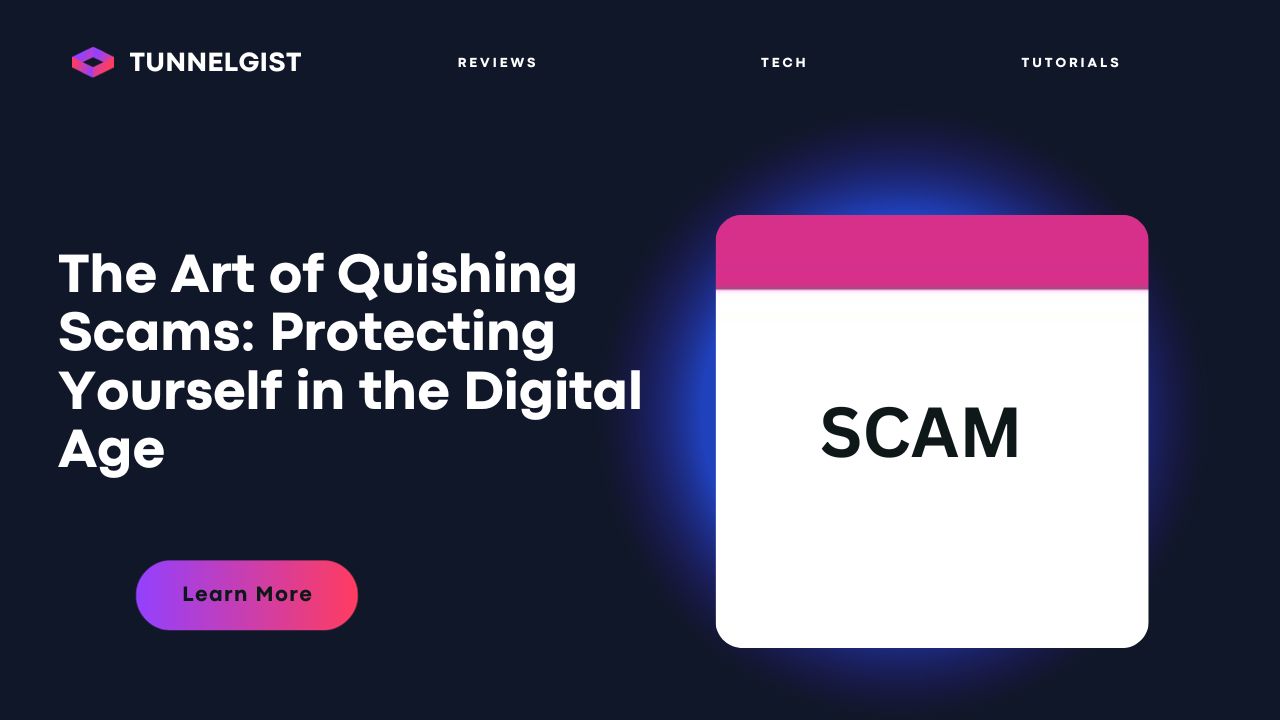
The Art of Quishing Scams: Protecting Yourself in the Digital Age
In today’s digitally connected world, the internet has become a breeding ground for scams and fraudulent activities. One such deceptive technique that has gained popularity is known as “quishing.” This blog post aims to shed light on the concept of quishing scams, how they work, and most importantly, how you can protect yourself from falling victim to these malicious schemes.
Learn More
Table of Contents
Understanding Quishing Scams:
Quishing is a blend of the words “phishing” and “voice.” It refers to a scamming technique where fraudsters use phone calls or voice messages to trick individuals into revealing personal and sensitive information. These scammers typically pose as legitimate organizations or financial institutions, creating a sense of urgency or fear to manipulate their victims.
How Quishing Scams Work:
Quishing scams often start with a phone call from an unknown number, and the scammer will use various tactics to gain your trust. They might mention a possible security breach, an unpaid bill, or even offer a tempting prize. The goal is to evoke a sense of urgency and pressure you into taking immediate action.
Once they have your attention, the fraudsters will then ask you to provide personal information such as your credit card number, social security number, or even your online banking credentials. They may also request a payment or ask you to download a malicious file or app, which can lead to identity theft or financial loss.
Protecting Yourself from Quishing Scams:
1. Be cautious of unsolicited calls: If you receive a call from an unknown number, be skeptical. Legitimate organizations typically do not reach out to customers through unsolicited calls.
2. Verify the caller’s identity: If the caller claims to represent a specific company or organization, ask for their full name, department, and contact information. Hang up and independently verify their identity by calling the official customer service number provided on the organization’s official website.
3. Never share personal information over the phone: Regardless of the urgency or fear the caller may induce, never disclose sensitive information such as your social security number, credit card details, or online banking credentials over the phone.
4. Be cautious of urgent requests: Scammers often create a sense of urgency to pressure their victims into immediate action. Take a step back, think rationally, and don’t let the pressure cloud your judgment.
5. Install reliable security software: Use reputable antivirus and anti-malware software on your devices to detect and prevent any potential threats. Regularly update these programs to ensure they are equipped to tackle the latest scams and malware.
6. Educate yourself and others: Stay informed about the latest scamming trends and techniques. Share your knowledge with friends, family, and colleagues to ensure they are also aware of the risks and can protect themselves.
You might like 👇
Conclusion:
Quishing scams are a significant threat in our increasingly connected world. By understanding how these scams work and implementing the necessary precautions, you can safeguard your personal information and avoid falling victim to these fraudulent schemes. Stay vigilant, trust your instincts, and remember that legitimate organizations will never ask for sensitive information over the phone.

![Latest Clean Up Roblox Codes [month] [year]](https://tunnelgist.com/wp-content/uploads/2024/04/ROBLOX-CODES-_20240402_170517_0000-1.jpg)
![Anime rangers Codes [month] [year] – Roblox](https://tunnelgist.com/wp-content/uploads/2024/04/ROBLOX-CODES-_20240402_154736_0000.jpg)
![Asphalt 9 Codes [month] [year]](https://tunnelgist.com/wp-content/uploads/2024/03/WIKI_20240331_152102_0000.jpg)